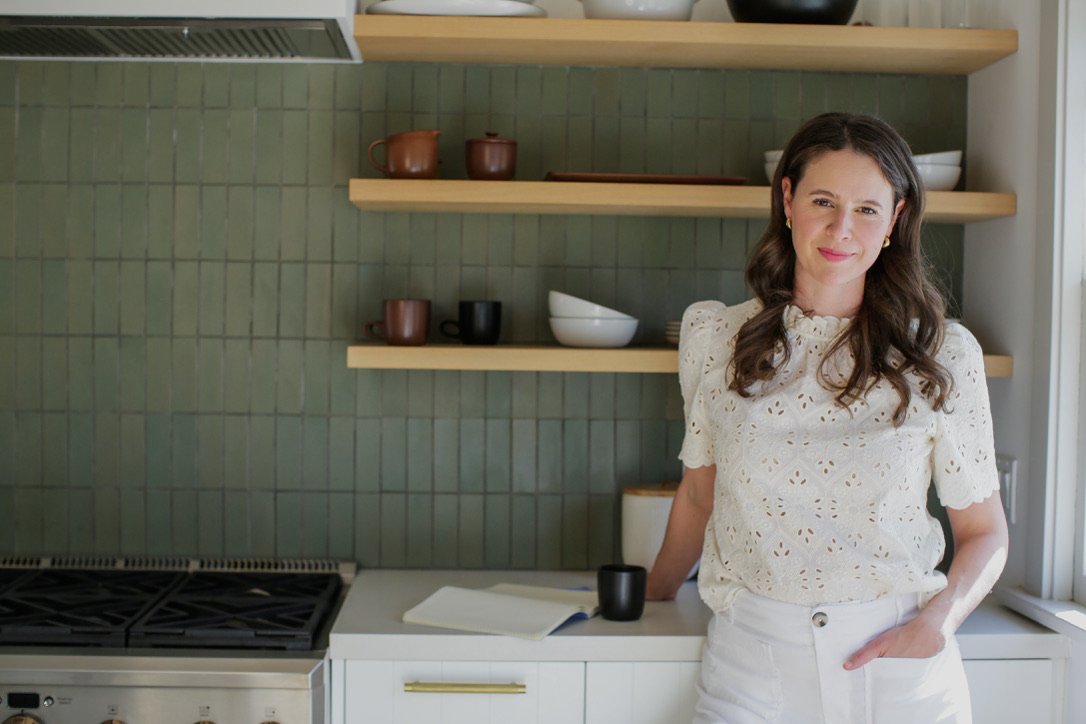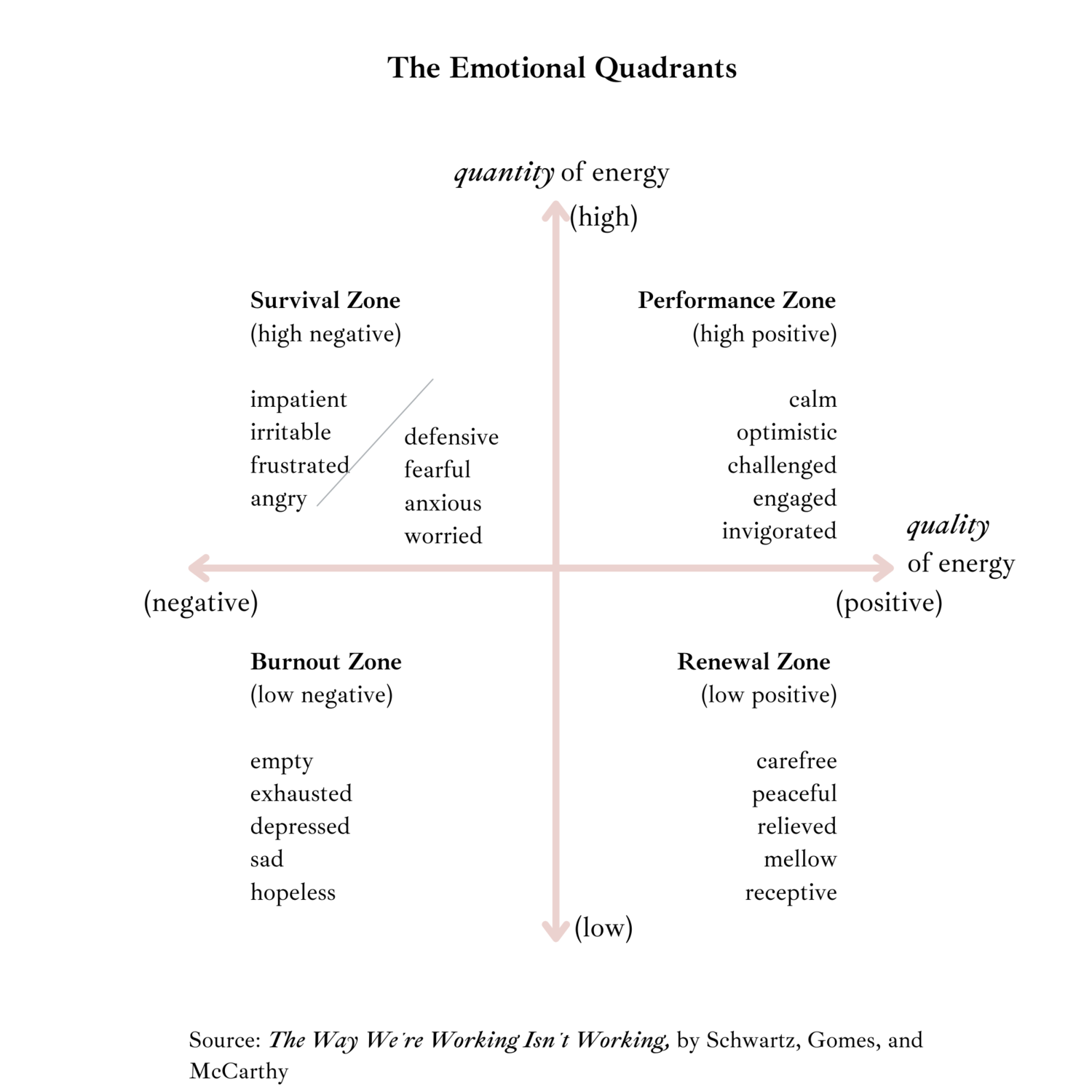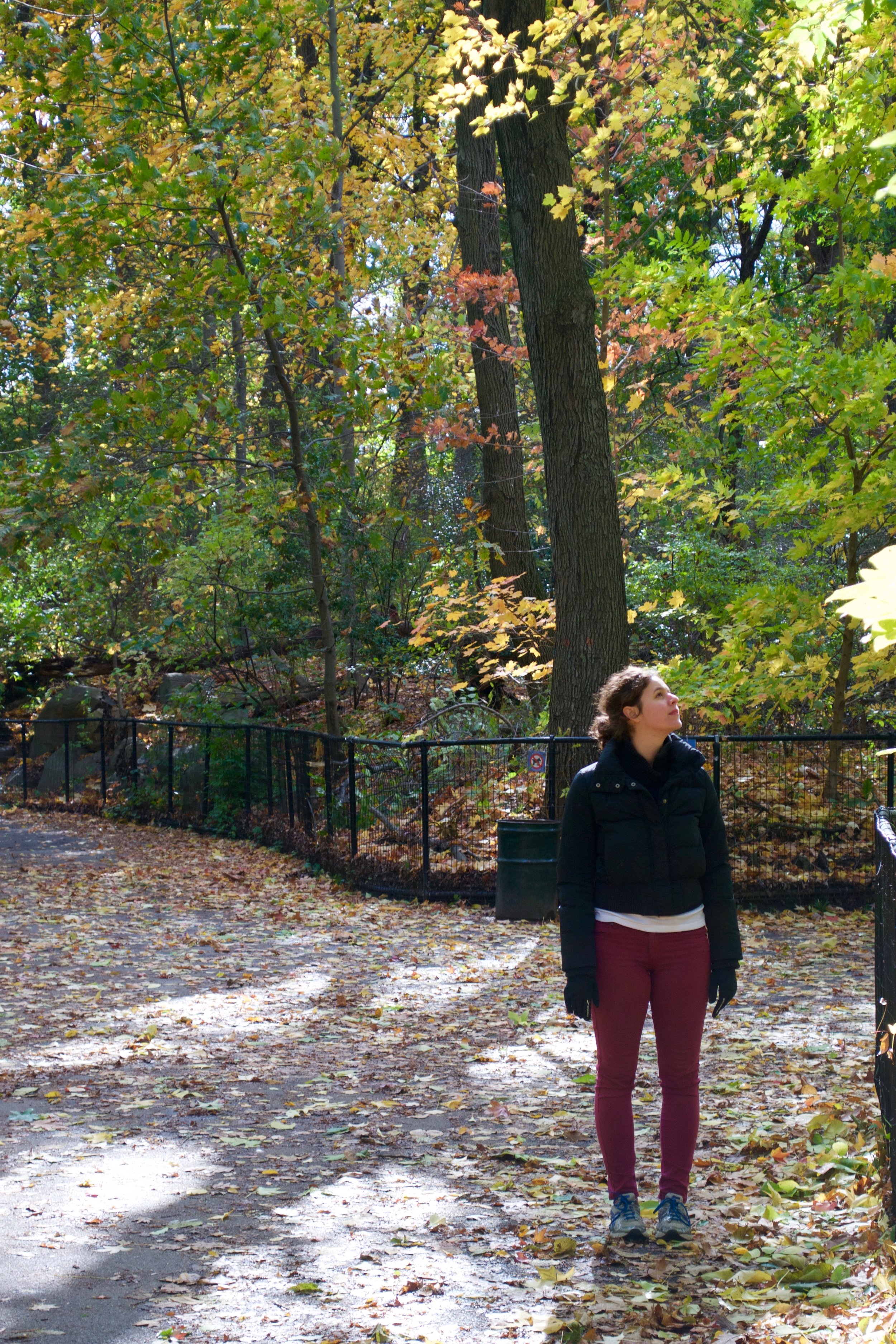Blog
On whether people like you at that outdoor, COVID-safe cocktail party
Many of us (me included!) might — you know, just sometimes — get a little anxious in social situations.
Maybe when there’s a cool-looking person at a party you’d like to befriend.
Or at Thanksgiving with your in-laws.
Or even with one of your oldest friends.
Our anxieties can take many forms…
Do they find me interesting / funny / smart?
Do they find me attractive / sexy?
Would they rather talk to someone else?
Do they want to be my friend?
And yet, they all boil down to the same fear: Do they like me?
Today I wanted to offer you a new thought to think, when you are worried about whether other people like you.
Here it is:
Instead of worrying whether they like you, ask yourself: Do I like *them?*
Did you catch that?
Instead of worrying about whether they like you, ask yourself: Do I like them?
I’ve played with this idea, and it has really shifted things for me. Here’s what I’ve noticed:
1. In meeting new people
I have long had mild social anxiety — I usually get a little anxious at a dinner party of all new people, for example. I often found the thought flitting across my mind: Katie, you are awkward and they probably don’t find you as interesting as the other people here.
But once I stayed focused on whether I liked them, and whether I want to get to know them better, it really shifted things for me.
Instead of trying to control them (“please, won’t you like me?!”), I just started paying much closer attention to them — to what they were saying, and to their whole way-of-being. Did I find them warm? Deep? Thoughtful?
This was much more relaxing to me, and I’m sure it made the people I spoke with more relaxed, too.
It also helped me realize: I don’t actually want to become friends with most people. Of course, I’m capable of chatting with almost anyone, and will be kind and respectful to everyone I meet!
But if I don’t feel “lit up” by another person, it doesn’t actually matter if they’d rather talk to someone else. I feel the same way about them!
2. In existing relationships where I didn’t feel cherished.
I have a few existing relationships where I felt that the other person — in various ways — didn’t seem to put in the “friendship work” for us to connect. I didn’t feel particularly valued, and I might have even started to feel hurt.
Asking “Do I like them?” changed everything for me.
If I realized that I didn’t actually value them that much, then it was fine that they seemed to be a bit checked out from the relationship. I realized it would make sense for me to “check out” a bit, too.
If I realized that I did deeply value the relationship, then I was willing to do the majority of the “friendship work,” at least for the time being. It was a relationship I valued!
…
One more thing:
I was talking about this concept with a client recently, and she wondered whether it was a bit egotistical, to focus on whether she liked other people.
From my perspective, it’s actually the opposite.
When we’re worried whether the other person likes us, we are typically “performing” — trying to make ourselves liked. We’re not showing up with the authenticity that typically leads to the most meaningful, lasting relationships.
But when we ask whether we like them, we’re being honest — with ourselves, and with them. If the relationship does form, it forms on the foundation of authenticity and a true, genuine desire to connect. That’s the kind of friendship that will be best for them, and for you.
…
Here’s your homework:
In a social situation, when you notice yourself worried about being liked, ask: do I like them?
As always, I’m rooting for you. You’ve got this.
Katie
Sign up for my newsletter to get helpful + encouraging essays like this every Sunday morning. It’s free!
2 (easy) ideas for when you're emotionally and mentally exhausted
Among the many things that I help my clients with, one category is what I’d call “feeling better” (we could call that “feeling less anxious” “feeling less tired” or even, “going from good to thriving,” depending on the client).
If you’ve been getting this newsletter for a while, you know that I have lots of ideas on how to do just that — from a two-day prescription, to ideas for intrepid intentional tech adventurers.
Today, I thought it might be nice to share 2 no-brainer ideas. For me, “no brainers” are not hard, don’t require a much (if any) emotional energy, and are at least slightly fun.
If you’re already doing both of these, awesome! If you’re not, they’re pretty no-brainer ones to add to your life.
Here they are:
1. Read a physical book or magazine for 30 minutes.
Design magazines or romance novels (my favorites) count. So do celebrity gossip magazines or Revolutionary War histories (just finished this, 100 pages into this). Anything counts as long as it is a physical reading material.
Just get off of your phone or laptop or TV and read something. Do it for 30 minutes. If you haven’t been reading much that’s not an internet article lately, it may be a bit hard to focus. That’s okay. Just practice, and it’ll get much easier.
I find it astonishing how much my breathing slows down, how much my nervous system calms down, when I read a physical book.
For extra credit, go for a full hour.
2. Take a walk.
Walk to your corner and back. Walk around the block. Or, sure, walk for 45 minutes or an hour. But if you’re anxious or overwhelmed, if you’re not walking…you need to start walking.
I know, I know: I’m so overwhelmed. Walking won’t help. Walking won’t fix it.
I dare you: Go take a walk. Email me if you don’t feel better afterward.
…
On one hand: maybe these feel “obvious” to you.
On the other hand: are you feeling low-level anxious, tired, or overwhelmed today? Have you done both of these things?
You’ve got this.
Katie
Sign up for my newsletter to get helpful + encouraging essays like this every Sunday morning. It’s free!
My favorite model for how to manage your energy levels + focus
Today, I’m going to start with a chart. Take a look, and then we’ll talk.
This is from The Way We’re Working Isn’t Working, by Tony Schwartz, with Jean Gomes and Catherine McCarthy. It describes four emotional zones you can be in, while you’re working.
The implications of it might blow your mind.
…
Let’s start by talking about the Performance Zone — the upper right quadrant.
To understand the Performance Zone, think about how you feel when you’re performing at your best — working effectively towards a specific goal. If you’re like most people (and Schwartz’s team has asked this question of thousands of people — athletes, artists, heart surgeons, teachers, cops, and more) you feel:
Engaged
Focused
Upbeat
Committed
Optimistic
The Performance Zone requires a lot of energy, but you also have mostly positive emotion — hey, that’s how it feels to be doing a great job working towards a specific goal.
…
If you’re like many people, you saw the Performance Zone + thought: Yeah, that looks pretty good. I think I’ll just stay there all day at work and be really productive.
But there’s something very, very important to know about the Performance Zone:
You can’t spend all of your time there.
In fact, for most knowledge workers, Schwartz’s research suggests that you probably can’t spend more than ~90-120 minutes at a time in the Performance Zone.
Yes, even if you want to spent more time in the Performance Zone, your brain will literally kick you out.
Most knowledge workers don’t know this. They start their day feeling fresh — engaged, focused; classic Performance Zone; and just aspire to stay that way. But then their brains get tired…and kick them out.
Where do they end up?
Typically, they end up in the Survival Zone (upper left): feeling mildly — or significantly — irritable, reactive, anxious, or distracted.
Or — perhaps even worse — in the Burnout Zone (lower left): feeling exhausted, depressed, even hopeless.
…
This is where the story gets pretty juicy, in my opinion. Because even though you cannot stay in the Performance Zone, you can control which zone you go to next.
One of the key ideas in The Way We’re Working Isn’t Working is the idea of “pulsing.” When you reach your limitations with the Performance Zone, you can consciously choose to “pulse” to the Renewal Zone.
In the Renewal Zone (lower right), you are — you guessed it — actively cultivating renewal. You feel relaxed, peaceful, laid-back, and serene.
Typically, this requires stepping away from your computer for at least a 15 minutes and doing something that would allow you to feel mellow, receptive, or peaceful. Things like:
Moving your body (walking around the block, stretching, doing a workout)
Looking out the window
Reading an actual, physical book or magazine for 10 minutes
Having a relaxing meal
Chopping some vegetables
Folding your laundry while listening to harp music (hey, you asked for suggestions)
It’s important to note: email or social media usually aren’t Renewal Zone activities. Typically, you will be too revved up to actually feel peaceful + receptive. Here’s more on that, if you’re interested.
…
Are you feeling skeptical about this whole “pulsing to the Renewal Zone” thing?
For most of my clients, it takes some practice with pulsing to really get the hang of it. You might be so accustomed to being agitated in your body all day, that actually calming down your nervous system sounds, well, impossible.
This does improve with practice. If you regularly offer your nervous system the chance to come down, it begins to learn how to relax.
And, even then, you may not get to “spa day” in your pulse to the Renewal Zone. But that’s okay.
Even a mediocre trip to the Renewal Zone is way, way more useful to you than the Survival or Burnout Zones. And once you’ve spent a bit of time in the Renewal Zone, you can — you guessed it — pulse back to the Performance Zone.
And, if you feel guilty about visiting the Renewal Zone during your workday? Read this.
…
Want the three-sentence summary?
1. Stop trying to work for more than 90 (or maybe 120) minutes at your knowledge-work job.
2. You’ll be more productive, paradoxically, by taking a renewal-oriented break.
3. (Instagram or email checking don’t count as a renewal-oriented break.)
…
Does this feel obvious? Impossible to implement? I’d love to hear!
As always, I’m rooting for you. You’ve got this.
Katie
The thought that led to huge personal growth for me
2021 is barely halfway over, and already, it has been an astonishing year of personal + professional growth for me.
When I say “astonishing,” I mean it. As in: no one is more astonished than me about how this year is turning out.
I’ve never felt more confident and skilled as a coach, and my clients have never gotten better results. My business has grown financially in ways that I used to be afraid to admit I wanted.
I feel physically well. Mentally sharp. Happy, a truly astonishing amount of the time.
Oh and: I freaking have 1-year-old twins.
Let's flash back to December 2019. I'm on the grey couch in my living room, crying to my husband: I’m not sure I can handle twins. I’m going to fall apart. My business is going to crumble.
Many factors helped make this year astonishing (Getting great childcare! All of these!). But there was one thought that I consciously decided to believe this year… and I think it made a huge difference.
Here it is: I believe I can learn anything with the right teacher.
It sounds simple, I know.
But don’t underestimate it.
I believe I can learn anything with the right teacher.
…
One example, of many:
In January, I admitted to myself that I wanted to grow my coaching practice — to reach more people, and to make more money — and I wasn’t sure how. I was a bit ashamed, to be honest, that I hadn’t figured out how to do it on my own already.
But I reflected on it and decided: I believe I can learn anything with the right teacher.
So instead of feeling ashamed… I went out and found a teacher — a coach. And she freakin’ rocked my world. It turned out that I could be more successful while feeling calmer and less tired.
I have done this on several key occasions this year. My teachers have been coaches, books, courses, a stylist, and a design agency. Many of my lessons are still in progress.
But mostly, I am astonished by the potency of the thought: I believe I can learn anything with the right teacher.
If I believe I can learn anything with the right teacher, then it’s totally fine that I don’t know how to do what I want to do yet.
My only job is to go and find my teacher.
Going and finding the right teacher takes patience. It takes humility. For me, it also took a decision: “I am willing to spend money to invest in myself.”
(That has been another lesson of this year. I have never invested in myself to the degree that I have in 2021. And yet: my investments have paid astonishing returns.)
…
I have good news: there’s still time for your 2021 to astonish you.
Do you believe that you can learn anything with the right teacher?
What would happen if you did believe it?
…
As always, I’m rooting for you in the week ahead. You’ve got this.
Katie
p.s. Would you like me to be your teacher?
I’m really, really good at helping people feel amazing about their lives.
Finally making progress on that screenplay. Finally finding a new job. Doing higher quality work, with fewer hours. Feeling: calmer, happier, more connected, more productive.
I’m currently fully booked, but I have 3 openings for new clients in October. I’m getting booked in advance now — so I’d recommend reaching out now if you’d like to have a fall start.
(Plus, how fun would it be to finish out the summer — lazing on the beach, reading a book with a cold La Croix next to you…knowing that you’re about to start a fun + life-changing life coaching engagement in the fall?)
Learn more about my work + apply for a consult here.
Sign up for my newsletter to get helpful + encouraging essays like this every Sunday morning. It’s free!
Screen-free weekends + 4 ideas for mindful tech use
Over the past several years, I’ve been working on being more intentional about technology in my personal life, and it’s been coming up with many of my 1:1 coaching clients. (Here’s why I think that is.)
I’m still not perfect, but I wanted to share a few things that have made a huge difference for me.
1. No screens after dinner.
For many years I’d cuddle up with my laptop after dinner — watching YouTube videos, or Googling how celebrities met their spouses. (Just me?)
But also: I was often tired, low-level anxious, or felt like there wasn’t enough time.
I wondered if there was a connection, so I started by making an intentional decision to read after dinner, instead of going on a screen. I love to read, but didn’t seem to read as many books as I used to.
I was shocked by how much better I felt — in the same two or three hours, it felt like so much more time, and I felt so much more rejuvenated. I ended up reading 40 books in the 12 months after I first implemented this practice. I also started getting tired and going to bed about an hour earlier — which led to me waking up earlier, without an alarm.
Most importantly: I felt so much calmer, less anxious, and like I had more time during my days. I never realized how much my screen usage was tiring me + zapping my ability to focus until I eliminated it.
2. No email on weekends.
I started implementing this about a year ago, and I adore it. Taking at least ~60 hours away from both personal and professional emails (from Friday afternoon to Monday morning) feels incredibly calming and rejuvenating.
3. I’m not a big texter or social media user.
After I had my twins about a year ago, I noticed that many new moms spend a lot of time on their phones. Lots of moms have really supportive text chains with other new moms, or consume a large amount of (encouraging! funny!) mom-related Instagram posts.
All of that can be awesome, but I found that I had a lot more energy and time… and frankly, happiness, when I minimized how much time I spent on my phone.
While I’ll sometimes check out a mom blog or Instagram feed, I try to get most of my support from catching up in person or on a phone call, and I read some books for parenting ideas.
More on my personal IG philosophy here.
4. Screen-free weekends
This is my newest intentional technology practice: staying off of screens for an entire weekend. I’ve been playing with it for the past two months and freaking love it.
I know that this practice might sound a little intense if you’ve never tried it. But also, every time I do it, I think: wow, this 2-day weekend feels like a 3-day weekend.
On screen-free weekends, the things that felt like chores (neatening up my office, batch cooking) seem to get done pretty effortlessly.
On screen-free weekends, I feel more present with my babies (who are now toddlers!) and my husband. I also feel more present with myself — more likely to just lie on my bed for twenty minutes and look out the window.
Plus, I tend to use the baby-responsibility-free time I do have to leave the house and do things in the outside world.
Though, I will also say that not every moment is full of joy and relaxation. I’ve noticed that I feel more, on screen-free weekends — I’m more likely to feel waves of boredom or anxiety or sadness. But it’s been so interesting to allow myself to ride the waves of emotions and body sensations — and to notice how they always, ultimately pass.
…
So, with all that in mind, I want to give a big caveat: I’m not a purist about any of these practices:
My husband and I watch ~90 minutes of TV each week, for example, and that usually happens after dinner. Maybe once a week, I send a few client emails at night, too.
On about 1/3 of weekends, I do check my email (especially my personal email), for one reason or another.
I definitely don’t make all weekends screen-free ones. Sometimes I just want to check out Anthropologie’s newest pant collection or watch the latest SNL videos.
Sometimes doing those tech-oriented actions serves me. And also, sometimes, it doesn’t — and I think that’s okay, too.
But I’m a big believer that sometimes acting in a way that isn’t on our own behalf is how we learn. Checking my email on the weekend, for example, is how I remember: oh yeah, I feel better when I give myself a break from this.
…
Intentional use of technology is, of course, not the only way to address many of the issues that we face in 2021 (anxiety, lack of time, not making progress on what matters most to us).
But I’ve found that they are a potent intervention for a remarkably wide spectrum of issues.
You don’t have to do what I do, of course. But would you like to be more intentional about technology?
Where might you begin?
As always, I’m rooting for you. You’ve got this.
Katie
Sign up for my newsletter to get helpful + encouraging essays like this every Sunday morning. It’s free!
What’s possible with help from a life coach
Yesterday, I was talking to a client of mine.
He was telling me how great he’s feeling.
He’s super excited about the big career shift he’s about to make, but he also feels happy and focused at his current job.
Plus, he feels happy in his life as a whole. He’s started tinkering in the creative hobbies that make him fulfilled, he’s taking good care of his body, and he’s managing his energy and his time well. He’s put in effort to cultivate deeper relationships.
But just three months ago, it was a very different story.
I felt so overwhelmed, anxious, and so tired back then, he reminded me. I really didn’t think there was a way out. When we started working together, I just hoped I’d feel a tiny bit better.
Our conversation yesterday was about what thriving means to him, and what other opportunities there might be — beyond what he’s done already — to be thriving more consistently.
It would have felt *insane* to say that I wanted to be “thriving” when we started working together, he told me. I had no idea all this was possible.
And yet, here we are: thriving.
Just three months later.
…
I don’t tell you this story so that you can beat yourself up. Maybe you do feel overwhelmed or tired or anxious now.
I tell you this story to say: look what is possible.
Look at what is possible when you decide that you don’t want to feel this way anymore.
Look at what is possible when you decide: maybe I don’t have to figure it all out on my own.
So many people have been stuck in their lives + their heads for so long, that they don’t think feeling different, or being different, is possible.
Sure, maybe some small tweaks. But a big, life-shifting transformation like this? That kind of thing doesn’t really happen.
I want to say, with all the love in my heart:
You’re wrong.
Transformation is possible.
Look at what is possible.
And, as someone who has been coached extensively, and coached many others — 1:1 life coaching is one of the most potent vehicles for transformation I know.
If you’d like to learn more about coaching, and potentially become one of my clients, you can apply here.
…
And, as always, I’m rooting for you in the week ahead. You’ve got this.
Katie
p.s. I’m starting to have conversations now with potential clients for a September/October 2021 start. I fill spots on a first-come, first-served basis, so if you’re interested in working with me, I’d recommend applying sooner rather than later. Here’s the link to apply.
p.p.s. And above all: maybe what’s possible for you is more than you dare to hope for.
Sign up for my newsletter to get helpful + encouraging essays like this every Sunday morning. It’s free!
Have you lost the capacity to focus?
An observation: Many of us have lost the capacity to focus.
In my experience, that statement isn’t so controversial in today’s world. Most of us are aware of how we flit between that big project and our email at work. Or scroll our phones while we watch Netflix.
And yet, I don’t think most people understand the more profound effects of this lack of focus.
Here are some I’ve observed:
Having to put in longer hours at work
Do you work more than you’d like to? Most white-collar office workers, in my experience, have abysmal focus. The constant email checking alone!
If you aren’t focused, it’s much harder to make progress on cognitively challenging work. So you’ll have to put in more hours.Never making progress on what matters most
It might be writing that book, our painting practice, or learning Arabic. Most things that require creativity, learning and growth also require focus.
Never feeling like we have enough time
Most of us could feel like we have more time in the personal time we do have, if we emphasized focused activities.
Here’s a personal example: I find that I can decompress far more effectively with an hour of reading than with two hours of vegging on the internet. Having that extra hour is very valuable to me!Chronic low-level anxiety and tiredness
When I started shifting my relationship to technology, I realized I had more energy + felt less anxious. It was incredible!
Now, if I have a day when I am constantly flitting my attention from thing-to-thing, I notice that I am more tired, and often have more low-level anxiety. Simply choosing to do focused activities in my downtime and at work for the next 24-hours can make a huge difference for me.
If you’d like to improve your focus, here are three important truths:
1. The more you focus, the easier it will be to focus.
In other words: Focus improves with practice. To practice — define a time period, and define what you will do during this time. For example:
During this next half hour, I will only work on this particular project. I won’t check my email or look at the internet.
During this hour at home, I will read. I won’t look at my phone.
I’d recommend picking a daily practice to play with. For example: doing one 30- or 45- minute segment of focused, single-activity work, each weekday. Or reading for an hour after dinner.
Pick an amount that feels doable to you. For many of us, even a half hour without checking our phone will feel challenging.
2. The less you focus, the harder it will be to focus.
If we spend our leisure time constantly scrolling Instagram, or checking our email every 10 minutes, it will be much harder to focus during our workday.
Doing these activities trains our brain to expect immediate novelty, stimulation, and pleasure. It’s much harder to “turn on” our focus when we need to.
So if you want more focus at work, you might examine how much you flit from thing to thing in your off-time. Or visa versa.
3. This applies to you, too.
It may be tempting to think that this applies to someone else. But my job requires constant email checking and constantly changing tasks!
I think you’re probably wrong. Yes, even if you have a job which seems to require constant email checking and task switching. Even you can make changes that would make a big difference.
…
Like most things I work on as a life coach, focus is a whole-person, whole-life topic. I’ve helped my clients tackle focus in their personal, professional, and artistic lives.
The good news is that improving something in one area tends to improve it everywhere.
So I’ll ask: Do you want better focus? If so, where can you begin?
…
As always, I’m rooting for you. You’ve got this.
Katie
Sign up for my newsletter to get helpful + encouraging essays like this every Sunday morning. It’s free!
A quiz that is also a coaching session
Here’s a quick quiz for you:
What’s your top priority in life right now?
Some examples: Finally writing that novel, feeling calm and spacious, spending time with my family, taking excellent care of my body.
How much of your time is spent actually spent on that priority, every day? Every week?
Do you like your answer to #3?
If not, what are you going to do about it?
My observation is that many of us have something that matters a lot to us… but we do not live our lives like that thing matters a lot to us.
We say we really want to write that novel, but we almost never sit down to write.
We say time with our family is our top priority, but we are putting in longer hours at work than are truly necessary.
We say that we want to value our health, but we don’t do much in that direction.
In other words, we spend relatively little (or zero!) time on that thing that we supposedly “value.”
Yes, I can feel your objections through the internet. I’m so busy! I don’t know how to do the thing I want to do! It’s so hard!
But the point still applies.
Yes, there are lots of reasons that your life is out of alignment with your priorities.
But also: What are you going to do about it?
…
As always, I’m rooting for you. You’ve got this.
Katie
Sign up for my newsletter to get helpful + encouraging essays like this every Sunday morning. It’s free!
Confidence, women, and success
Here’s something I can’t get off my mind:
A review of personnel records found that women working at HP [Hewlett-Packard] applied for a promotion only when they believed they met 100 percent of the qualifications listed for the job. Men were happy to apply when they thought they could meet 60 percent of the job requirements. […]
Under qualified and underprepared men don’t think twice about leaning in. Overqualified and overprepared, too many women still hold back. Women feel confident only when they are perfect. Or practically perfect.
This is from a fantastic Atlantic piece by Katty Kay and Claire Shipman, called “The Confidence Gap.”
And it’s that last sentence that I can’t seem to forget: “Women feel confident only when they are perfect.”
Of course, it’s worth having a larger, more complex conversation about both women’s under-confidence and men’s (at times) over-confidence.
But, for this weekend, I just want to ask: In what area of your life are you waiting to feel perfect, in order to feel confident?
You’ve got this.
Katie
Sign up for my newsletter to get helpful + encouraging essays like this every Sunday morning. It’s free!
On constant stimulation, why you feel jumpy when you put down your phone, and a concept I invented
Today, I wanted to share about Stimulation Differentials.
“Stimulation Differentials” is a term I invented. They’re helpful for understanding why you might use technology or food in a way that doesn’t serve you — or why you’re a bit anxious… all the time.
Here’s the idea:
Going from a high-stimulation environment to a low-stimulation environment (e.g., going across a “stimulation differential”) can feel uncomfortable or agitating in our bodies, especially if we’re not accustomed to making this transition.
And in 2021, many of us are extremely unaccustomed to making this transition.
Let me say more:
Our bodies get revved up, to some degree, when we do something with more stimulation. So once we take that stimulation away, our bodies are still revved up.
Here are examples of when this can happen:
You’re checking Instagram on your phone (higher stimulation)…and you turn it off (lower stimulation).
You’ve been at work (higher stimulation — you had a lot to think about, and people to interface with), and you just got home (lower stimulation).
You go from exploring the supermarket (higher stimulation) to waiting in line to check out (lower stimulation — fewer things to explore, do, and think about).
If you’re not accustomed to the process of calming your nervous system, then suddenly noticing all of these stimulating body sensations can feel surprising and disorienting. You may feel uncomfortable, agitated, or jumpy — like you want to jump out of your skin.
Or maybe you never notice the Stimulation Differential at all — you just notice that you need to take out your phone and check something when you have a minute of time in between activities. You notice that you need to eat a cookie as soon as you come home from work every day.
In 2021, many of us almost never bridge the Stimulation Differential but rather keep ourselves chronically stimulated, because we are afraid of the slight discomfort of being more stimulated than our environment.
But this is a serious loss because those moments of emptiness and lower stimulation are when:
Our brains truly recover — so we can approach our next task with the maximum amount of focus and creativity.
We get intentional about our next action, rather than simply reactive.
We have insights about what we truly want in life.
We recover and find the spaciousness, grounded-ness, and calm that so many of us yearn for.
When my 1:1 coaching clients tell me that they’re chronically a little bit anxious or they don’t know what they want from life, one thing I often explore is whether they are allowing themselves to come down — to truly land in a lower-stimulation environment.
Or are they just keeping themselves stimulated all of the time?
If we’re constantly stimulated all of the time, how can we expect to feel calm, less anxious, or clearer on our lives?
…
I saved the best news for last:
Once you get accustomed to bridging the Stimulation Differential…it’s actually not so uncomfortable.
You just know that, for example, at the end of your workday you are a little revved up. So you need to let your body come down by — perhaps — reading a book for a half hour (rather than going on the internet, which would also be stimulating).
Which is to say: what’s hard about Stimulation Differentials actually is significantly reduced by practice.
So this week, I’ll ask: are you avoiding bridging your Stimulation Differentials? If so, how’s that working for you?
I’m in your corner rooting for you.
Katie
Sign up for my newsletter to get helpful + encouraging essays like this every Sunday morning. It’s free!
On making big life decisions + turning down a "yes"
Leaving a “no” isn’t actually that hard of a decision.
If the job, relationship, or city clearly isn’t right, it’s not so hard to break ties. You might not be able to make a change right away, but you know what’s true.
The hardest decision is to leave a “yes.”
A relationship might be “yes” — it might have a lot of love in it.
A job might be a “yes” — it might have people you like or a great industry.
A place might be a “yes.”
And yet.
And yet, for some things, a “yes” isn’t good enough.
For some things, you need to have a higher standard. “Hell yes,” perhaps.
Naming that a “yes” isn’t good enough doesn’t mean that you are impossible to please, that you’ll never be satisfied, or that you’re afraid of commitment.
(Any of those things could be true. But is it true about this?)
…
Here’s a personal story:
A few years ago, while taking a long walk around the Silverlake Reservoir, I listened to a friend tell me about a relationship he was in. His partner was smart, interesting, and kind. He really cared about her and was considering marriage.
The relationship was a “yes.”
And yet.
And yet, as he spoke, it was clear that the relationship wasn’t a “hell yes.”
I told my friend that a “yes” might not be good enough for the decision about whether to get married. I told him that, from experience, I knew a “hell yes” could exist.
Shockingly, he took my advice — and ended the relationship. Within a few months, he started dating his “hell yes” partner.
Now, they are planning their wedding for September.
I will be officiating.
…
I’ll repeat: the hardest decision isn’t leaving a “no.”
The hardest decision is leaving a “yes” because some deep part of you thinks that a “hell yes” might be out there for you.
As always, you’ve got this. I’m rooting for you.
Katie
Sign up for my newsletter to get helpful + encouraging essays like this every Sunday morning. It’s free!
Nervous about hiring a life coach? Here's what you can expect
First things first! I’ll have 3 spots for new 1:1 life coaching clients in June! After that, I won’t have any openings until the fall. If you’d like to be next in line, you can join my waitlist here.
I’m curious: did reading that make you feel intrigued? Like: Maybe life coaching could be really helpful.
But did it also make you feel fearful? I bet it wouldn’t actually work. Or: It’s too expensive.
Today, I wanted to share the fears I have when hiring a coach — which just so happen to be the most common fears I hear from potential clients.
I hope they’re helpful to you, too.
…
Some common fears about hiring a life coach:
1. The coach will force me to do something I don’t want to do.
It’s scary to think about paying a lot of money for a coach, and then have that coach misunderstand us. Or try to force us to do something that doesn’t feel truly right for us.
I think it’s important to know: my job as a coach is to understand you as deeply as I can, and then to show you your own mind — so you can understand your reasons much more clearly, and make a decision that serves you best. We all have blind spots that are simply impossible to see on our own. And we all would benefit from being offered new ways or models for thinking about our current problems.
In other words: I don’t care what choice you make. You can leave your partner, or stay. You can leave your job, or stay. You can dye your hair blue, or leave it the same.
I just want to make sure that you know your reasons, and like your reasons.
2. I don’t have time or energy for coaching right now.
If you don’t have time or energy… you need coaching more than anyone.
Here’s why: most of us are contributing, in a significant way, to our lack of time and energy.
Of course, this isn’t to say that life circumstances don’t also contribute. Of course, they do — you’re busy! You have kids! And a big job!
But I will say it again: most of us are contributing, in a significant way, to our lack of time and energy.
I think that’s actually great news. Because if we’re contributing, then we can help ourselves get more time and energy. I help clients with this nearly every day of the week.
3. I’m worried that this coach isn’t absolutely perfect for me.
Fit absolutely matters, and it’s worth your time to research the coach you’re considering working with — do you like what she writes about in her blog or on social media? When you have a consultation together, do you resonate with what she says?
But also: your coach doesn’t have to feel like your soulmate to get you transformational results.
I don’t say that to be harsh; I say it because I have to remind myself of it, too.
Plus, you’re not going to know her as deeply, in your first interactions, as you will by the end of the coaching engagement. My affection for my coaches always grows over time.
4. It’s too expensive.
Good coaches are expensive. It’s true. I’m expensive, too.
And yet: the outcomes of coaching are, in my opinion, the most valuable outcomes that you could possibly achieve. Is there anything more valuable than feeling genuinely happier, more fulfilled, calmer, more successful in the work you want to do, and more connected to the people in your life?
And this is to say nothing of the genuine dollars-and-cents-in-the-bank-account outcomes that I frequently help clients achieve (which are often significantly in excess of coaching fees): promotions, raises, books written, fellowships earned, gigs booked.
Then there are the clients who avoid burning themselves out and then quitting their jobs to live in a van by the sea for a year. That’s significantly more expensive than my coaching fees. (Plenty of my clients choose to take time off, but it’s because they want to, not because they have to.)
My goal is always that my clients think that the money they spent on me was the best money they’ve ever spent.
…
As always, I’m rooting for you. You’ve got this.
Katie
p.s. one last thing: sometimes, there’s a bit of a jumping-off-the-diving-board feeling to hiring a coach. I’ve felt this every time I’ve hired a coach. And I’m a coach myself!
I think that making a big investment may always feel like jumping-off-a-diving-board to me, and that doesn’t mean it’s the wrong decision.
So I’ll offer one last time:
If you’re interested in working with me 1:1, you can learn more here.
I have just a few spots available in June, and several more in October — and I fill the spots on a first-come, first-served basis, starting with folks at the top of my waitlist. If you’d like to work with me this year, I’d recommend getting on the waitlist ASAP.
Here’s the link to learn more or join the waitlist.
Sign up for my newsletter to get helpful + encouraging essays like this every Sunday morning. It’s free!
The millennial "solution" to overwhelm + burnout, and why doesn't work
A millennial walks into a Zoom call with me…
“I’m totally burnt out, she tells me. “I work way too many hours, there’s way too much stress at my job.”
“I’ve got a plan, though,” she says.
I perk up. I love a good plan. What will it be?
“I’m going to keep working for six more months. Then I’ll quit my job, buy an Airstream, and live by the ocean for a year.”
Oh.
Interesting.
Let’s play this common “plan” out to its logical conclusion:
This millennial keeps working through exhaustion and overwhelm, until she is completely, 100% burnt out. Luckily, she has saved up enough money to take a year off, but she spends at least 4 months of it just recovering from burnout.
She does enjoy the next 4 months. She lives in an Airstream by the ocean, after all! Or she backpacks around New Zealand! That’s pretty fun!
But in the last 4 months, she starts looking for a job again, and realizes…
… the best jobs available to her will be in her former industry.
So she takes a job. This job is similar to her previous one: decently interesting, has good people, but has very demanding work. Since she never actually learned how to set boundaries and accept tradeoffs… she will quickly be on the road to burnout yet again.
I hope she can save up money quickly for another year in a van by the sea.
…
I can’t tell you how many millennials I’ve heard tell me this plan. And how many more I’ve watched live this plan, in their Instagram-facing lives.
I call this the “I’ll avoid setting boundaries or making changes, totally burn myself out, and then live in a van by the sea for the year” plan.
Or “The Millennial Solution to Overwhelm,” for short.
To be clear: I’m not opposed to living in a van by the sea for a year. Or backpacking around New Zealand. That actually sounds pretty fun!
I just think that it would be far more fun to quit your job having figured out how to do a good job at your job without burning yourself out.
Then, you could start your year in a van by the sea feeling really good and happy (as opposed to spending months recovering from burnout). And then you wouldn’t be afraid of taking another job again, because you’d be confident that you had the skills to add significant value at work, while also feeling cared-for and happy in your life.
…
And of course — not every job is right for you! I’ve left jobs simply because I didn’t want to do them anymore.
But if you like many elements of your job (the people, the work, the industry), except that you’re stressed, exhausted, and don’t have any time… that’s when I think you need to look deeper.
Looking deeper requires a few things:
Making tough tradeoffs.
The #1 tradeoff? Accepting that others may not think you’re the “perfect” employee if you don’t give them exactly what they want when they want it.
The ironic thing, of course, is that when you stop trying to be “perfect” and please them all the time, you’ll have more energy, time, and focus. With that energy, time, and focus, you might actually add far more value to your team.Being willing to try something new.
The first pushback I typically get is that it’s “not possible” to have more time or feel less stressed at your current job. Here’s the thing, though: I haven’t met a 1:1 life coaching client who I wasn’t able to help get those exact outcomes if it was something they wanted.
Of course, there are limitations in every role. But you would be extremely pleasantly surprised, at what is possible if you’re willing to ask tough questions + try new things.
In other words: Just try me.Being different.
I understand that everyone else in your job hustles all day has no free time… and seems to be okay with it.
But are you okay living like that?
Something I often say to my 1:1 life coaching clients is: Could you be an example of what’s possible?
If I knew someone at my exhausting, stressful job who actually seemed… happy, like she had time, and who also did good work, I would be desperate to know how she managed it.
Could it be good to be different? Could being different allow you to help others?
…
So here’s my suggestion: quitting your job to live in a van by the sea for a year sounds super fun.
But it will be even more fun if — first — you learn how to work a job in a way that works for you.
And if you’d like help figuring that out, I can’t recommend 1:1 life coaching enough. I will be opening just a few slots in June, and already have a waitlist. If you’d like to be next on the list when I do have openings, you can learn more + join the waitlist here.
As always, you’ve got this.
Katie
Sign up for my newsletter to get helpful + encouraging essays like this every Sunday morning. It’s free!
Why I typically don't suggest "working harder" at your job (and what to do instead)
Here’s a maybe-radical idea:
At work, your job is to add value. Your job is not to work a specific number of hours.
Let me say it again:
At work, your job is to add value.
Your job is not to work a specific number of hours.
I’ll give the obvious caveats: I’m (mostly) talking about knowledge work. And yes, of course, there are exceptions.
But also, there’s a good chance you’re not the exception.
Your job may think that it wants a certain number of hours from you, for example, but what it really wants is the greatest amount of value from you.
Doesn’t that make logical sense? If the choice was more hours or more value, wouldn’t the obvious choice be more value?
…
Here’s the other important thing: most people will add the greatest amount of additional value by working smarter, not harder.
Working smarter involves using our brains more effectively when we are working, and then taking strategic breaks so that our brains can rest. Working smarter frequently involves working less than you do now.
Here’s a thought experiment:
Imagine that you’re a manager. Your direct report says: I want to add 25% more value, but I don’t want to tell you how I’m doing it.
Would you care how she was doing it (as long as it was ethical, of course)?
What if it turned out that she was adding 25% more value by working 25% fewer hours?
…
I frequently help my 1:1 life coaching clients do exactly that: add more value at work, often while working fewer hours.
My clients sometimes feel nervous, at first. Working fewer hours tends to also make your life nicer. There’s more time for exercising, having a calm lunch break, or spending time with family. Are they doing something wrong?
But I’m not telling them to be slackers, or lazy. I’m always focused on them being proud of their work and adding as much value as possible. It’s just that more hours don’t always mean more value.
Eventually, my clients realize this, too.
…
A series of steps may be required to actually implement working smarter, but the first key is this:
You have to shift your mindset away from “my job is to show up at work for 10 hours a day.”
Instead, you have to think: “My job is to add as much value as possible.”
As always, I’m rooting for you. You’ve got this.
Katie
Sign up for my newsletter to get helpful + encouraging essays like this every Sunday morning. It’s free!
If it's a good idea...
Here’s something to live by: If it’s a good idea, it’ll still be a good idea 10 minutes from now.
If it’s a good idea to check Instagram (or your email, or YouTube)…
If it’s a good idea to eat that cookie (or that apple)…
If it’s a good idea to send that email …
…It’ll still be a good idea 10 minutes from now.
I’m sure we can all think of rare exceptions to this rule — times when if you don’t do it right-this-very-second, it will be a problem. If one of my babies is about to touch an electric socket, for example, I’m not going to wait 10 minutes before moving him away.
And yet, far too many of us have the opposite problem.
We do things that don’t serve us. We eat, use technology, and tell our loved ones or colleagues things… that would probably be better left un-done, un-said.
…
And if you want to get next-level on this, you could even say: If it’s a good idea, you will be able to lie on the floor for 10 minutes, and still want to do it afterwards.
(The idea behind this: lying on the floor tends to calm our nervous systems. So if you still want to eat a cookie/check your email/browse Instagram even after your nervous system is calm, it’s probably that you actually want the thing, and not that the thing is your way of numbing out from the discomfort of being a human.)
Might you be bold enough to…try it?
I’m in your corner rooting for you.
Katie
Sign up for my newsletter to get helpful + encouraging essays like this every Sunday morning. It’s free!
On "gravitational pulls" + other people's value systems
Here’s a life-changing question for you:
Are you allowing yourself to get trapped in the gravitational pull of other people’s value systems?
You know, the values of:
Your colleagues
Your boss
Your college or graduate school classmates
Your mom
Your friends
We choose our jobs based on what our business school classmates think a “good” job is. We chose our lunch based on what our mom would think was “healthy” or “reasonable.” We choose our outfits, our hair, our weekend activities, our partners, and our friends, based on someone else’s value system.
Sometimes the value system doesn’t belong to anyone we could explicitly identify. It’s just “the world.” The world says that if I don’t do my job this way, I’m a bad person! The world says that if I ask for this I’m greedy!
But: do we agree with that assessment?
Does that assessment reflect our true values?
…
The alternative, of course, is to be crystal clear on your authentic values and priorities… and live according to them.
For many of us, this feels impossible. We have no freaking clue what our values are. Or the gravitational pull of others’ values feels truly impossible to escape. Their values feel like "the truth” about life.
To which I would say:
It’s 100% possible to know your values, like your values, and live according to them.
Yep. I mean it.
You may face roadblocks, but they can almost always be addressed.
Many of us fear that addressing these roadblocks will feel like pushing enormous boulders across football fields. The truth? Far more often it is actually incremental, small shifts inside our own brains. This is at the core of much of the work I do with my 1:1 life coaching clients if it’s ever of interest. So this weekend, about any choice — small or large — you might ask yourself:
Am I choosing this based on my own values, or someone else’s?
So this weekend, about any choice — small or large — you might ask yourself: am I choosing this based on my own values, or someone else’s?
As always, I’m rooting for you. You’ve got this.
Katie
Did you like this essay? Sign up for my newsletter to get helpful + encouraging essays like this every Sunday morning. It’s free! :)
Craving a big, dramatic change in your life? Read this first
Today I want to talk about how humans change.
But first, I want to talk about medical change — you’ll see why soon. Let’s talk about Atul Gawande, a surgeon and writer.
Gawande shares in “The Heroism of Incremental Care” that while he was in medical school, he watched a resident cut open the abdomen of a patient with a ruptured spleen in “two, quick moves,” cutting through the patient’s tendon “as if it were wrapping paper.”
He was amazed. A surgeon could make a huge difference in someone’s life — the difference between life and death — with just a few Big, Dramatic Actions.
Gawande wanted to be able to do those Big, Dramatic Actions, too.
And yet, as he moved through his career, he realized that there are many, many medical problems that cannot be solved with Big, Dramatic Actions. These medical issues are also extremely serious, but “two, quick moves” won’t resolve them.
One great example is chronic headaches and migraines, which can last for decades, occur daily and be so debilitating that people can’t work, maintain relationships, or even make personal commitments.
The John Graham Headache Center, in Boston, has a reputation for being successful with difficult headache cases. Gawande spent time with Elizabeth Loder, the Center’s lead physician, as she met with a new patient. He watched as Loder listened to a patient’s history and did an examination.
Then, he says:
“We came to the moment I’d been waiting for, the moment when I would see what made the clinic so effective. Would Loder diagnose a condition that had never been suspected? Would she suggest a treatment I’d never heard of? Would she have some special microvascular procedure she could perform that others couldn’t?”
Gawande was waiting for the Big, Dramatic Action.
But disappointingly, he found, “the answer was no.”
“No” to all of it.
There was no flashy diagnosis, no innovative procedure, and no fancy treatment. In fact, Loder spent most of the first meeting managing expectations — telling the patient that the process would be slow and incremental, and if their work produced anything more than a fifty percent reduction in the number and severity of headaches, “they’d call that a victory.”
And yet, Loder is one of the best doctors in the country at this. “The Heroism of Incremental Care” includes more detail on the many people whose lives she has radically changed for the better.
She is extremely skillful, but her work is gradual, iterative, and incremental.
Despite the fact that we all love the flashy, dramatic, quick, “heroic” intervention, it is often the slow, iterative interventions — done by doctors such as headache specialists, but also as primary care physicians and family doctors and geriatricians — that can be the most impactful.
…
Gawande’s writing is about the medical field, but can you see how it might apply to human change, more generally?
I see this all the time with my 1:1 life coaching clients. People come to me because they want more traction toward satisfaction, fulfillment, or well-being in their lives. They often think that they need to take dramatic action and want my help in figuring out which dramatic action to take.
Should I quit my job and try to become a TV writer?
Should I get a divorce?
And, of course, sometimes people do need to take a “bigger” action. But far more often, our work goes like this:
I get to know you as deeply as I can. We talk about how you’re doing now, what you’re yearning for, and what you’ve tried in the past. What has worked? What hasn’t?
Then, I point something out — a blind spot, a new model, a way of thinking about something you’re struggling with, a new thing to try.
You make a small shift, and we reconnect. We discuss our learnings, adjust, and try something new — another new idea, new model, new practice.
And yes, there are weeks when everything suddenly seems to change — it’s fun and exciting! But they typically follow many previous weeks in which we laid the groundwork.
The end result is often quite astonishingly deep + impactful. Just this week, a client of three months told me: Katie, I had no idea how deep life coaching was going to be.
But — there are no “two, quick moves” that resolve everything. There’s no Big, Dramatic Action. It is incremental, gradual, and iterative.
In my experience, most human changes — even the things that look big and flashy from the outside — ultimately happen like this.
With that in mind, here’s my questions for you:
In what areas of your life are you dreaming of a big, dramatic, flashy change?
What could you do to make small, incremental, undramatic progress toward that goal?
As always, I’m rooting for you. You’ve got this.
Katie
Did you like this essay? Sign up for my newsletter to get helpful + encouraging essays like this every Sunday morning. It’s free! :)
My three pieces of advice for Highly Sensitive People (HSPs)
Last week, I shared that I’m a Highly Sensitive Person (HSP).
Put simply, HSPs are more sensitive to stimuli— both internal (feelings, thoughts) and external (noises, light, other people’s feelings). If you’d like a much more thorough discussion of the temperament, check out my essay from last week.
Learning more about the temperament helped me immensely — it helped me both manage challenges that arose from having it and also played to my strengths as an HSP. It turns out that many of my clients are actually also HSPs, and what I learned was often helpful for them, too.
So, today I wanted to share three pieces of advice I often give to Highly Sensitive People.
1. You may feel weird.
Being a Highly Sensitive Person means, definitionally, that most people are not like you. Dr. Aron’s research suggests that ~20% of the population are HSPs. That means, of course, that 80% of the population is not highly sensitive.
Have you ever felt “weird” because, for example, you felt sensitive to internal or external stimuli? Or because you seemed to get tired more easily than others? That would make sense — it’s likely that ~80% of the people around you simply don’t feel sensitive in this way.
Many HSPs grow up with painful internal stories about themselves. They beat themselves up for being “too sensitive.” Or they try to hide, ignore, or suppress that sensitivity. In the era of easily available food and technology, this is relatively easy to do.
But it’s important to name: there is nothing wrong with you.
Having Sensory Processing Sensitivity (SPS) — the core trait of HSPs — is simply a personality trait or a temperament. It is neutral. It is not a disorder (there is something called “Sensory Processing Disorder;” but that’s different.)
But, I hope it brings you comfort to know: about 20% of people are like you! They are also Highly Sensitive! Though, many HSPs learn to survive in the world by hiding (or ignoring, as mentioned above) their sensitivity, so the full 20% can sometimes be hard to find.
But once you start looking for them, you can usually find them. If nothing else: you know me!
2. There are strengths associated with being an HSP!
I’m going to say it again: There are strengths associated with being an HSP!
I emphasize this because I think many HSPs — me included — spend most of our lives bemoaning their weaknesses. Even if you’d never heard of an “HSP” before you read this post, you were likely acutely aware of your “weaknesses” :
You seemed to get tired more easily than other people
You were emotionally more sensitive
You were more sensitive to stimuli like light or sound.
All of that can be frustrating to others — and ourselves. Why can’t I just have more energy? Why can’t I just stop being so sensitive?
And yet: there are huge strengths associated with being an HSP. In my personal life, here’s a few ways in which I think my sensitivity is a strength:
It makes me a better coach.
I pick up on extremely subtle input from my clients — a single word that they’ve chosen, or a subtle facial expression or body movement.
It allowed me to grow as a person.
I’ve experienced enormous personal growth in my adult life — and have changed so much about how I engage in relationships, work, my environments — and, of course, how I eat. I am capable of deeply investigating myself — pulling apart all kinds of subtle feelings, thoughts, and sensations.
It makes me a better partner and friend.
I can pick up on very subtle signals from my husband, or friends. Sometimes I have to put this information to the side + not inquire about it because it’s not my place to mention! But it often allows for deeper intimacy, communication, and trust.
It makes me a smarter person.
If you are processing information more deeply in your brain — a core trait of HSPs — you will likely understand it better, and be more capable of making new connections or insights. As I mentioned last week, Aron says that many researchers on giftedness say that there can be a strong correlation between intellectual giftedness and HSPs. I have plenty of insecurities (plenty!!), but not being smart isn’t one of them. And I do think that my sensitivity is linked to this.
I don’t share these strengths to brag. I share these strengths because, for years, I bemoaned the challenges that were associated with being an HSP (I get tired so easily! I am so freaking sensitive to myself! And the outside world!!).
And yet: this list includes some of the things I like best about myself and some of the things I am most proud of in the world. I don’t think I would be as good at what I do, or that my relationships would be as deep if I wasn’t an HSP.
So, I will say it again: being an HSP is simply a temperament. There are both strengths and challenges associated with the trait. BOTH.
3. HSPs may need to take themselves more seriously.
The research strongly suggests that as children, HSPs are more affected by their environment than non-HSPs.
In a negative environment (physically or emotionally unstable), HSPs do worse than non-HSPs on metrics from health to happiness to academic achievement. But, in a positive environment (physically and emotionally stable), they do better on all of those same metrics.
Did you catch that? In a positive environment, HSPs do better than non-HSPs.
In my own life, and in working with my 1:1 life coaching clients, I find this to also be extremely true for adults. In a very challenging environment (anything from long hours at work to a home situation that doesn’t work for them), HSPs can really struggle — perhaps more than non-HSPs would. This can be very frustrating and discouraging for them. (It was for me!)
But in a good environment, with the right support? HSPs freaking THRIVE.
I think this means that HSPs — once they are adults and have control over their environment, support, and opportunities — need to take themselves more seriously. Many of us have thoughts like, “oh, I should be able to handle this challenging situation,” or “I don’t need help; I should be able to figure it out on my own.”
But let’s review: HSPs are more negatively impacted by negative environments. And often do better when they are in a positive environment, with good support.
So yes, you could push through. You will survive. But: if something is in your control (a job, a place to live, or the decision to get support or not) — it’s worth asking: why are you making things harder on yourself?
And: Is choosing to make things harder really serving you?
…
Oh, and one more thing? And if you’re reading this essay, there’s a decent chance you’re an HSP.
Dr. Aron, a therapist herself, says that HSPs are 20% of the population, but 50% of all therapy clients. This is partially because — as I mentioned above — HSPs can be more sensitive to their environment and need more support. But also, HSPs tend to value depth, so they enjoy therapy and personal development.
I think that this also makes them more likely to read essays on topics about meaning + satisfaction :)
So I’ll remind you, one last time:
If you are highly sensitive, there’s nothing wrong with you.
It’s simply a personality temperament — and about 20% of the population has it.
There will be challenges associated with that temperament, and also unique strengths.
So the key question is: how will you play to your strengths, and manage your challenges?
As always, you’ve got this. I’m rooting for you.
Katie
Did you like this essay? Sign up for my newsletter to get helpful + encouraging essays like this every Sunday morning. It’s free! :)
I’m a Highly Sensitive Person (HSP). Are you?
One of my most powerful revelations of the last half-decade was that I’m a Highly Sensitive Person (HSP).
Have you heard of “Highly Sensitive People” before?
I hadn’t, until just a few years ago. But, learning about the trait was extremely helpful for me. As it turns out, a large percentage of my coaching clients are HSPs. Maybe you’re an HSP, too — or know someone who is.
Today I wanted to talk about what HSPs are + how to tell if you are one.
What’s a HSP?
A Highly Sensitive Person (HSP) is someone who has Sensory Processing Sensitivity (SPS).
Put simply, Sensory Processing Sensitivity (SPS) means that you are more sensitive to stimuli — both internal and external. It also means that you process those stimuli more deeply in your brain.
SPS was first defined as a personality trait, or a temperament, by psychologist Elaine Aron; here is a selection of published papers on the trait. About 20% of the population has SPS. It’s not a disorder — it’s simply a description of a normal temperament.
Aron summarizes the core characteristics of HSPs (or, “people with SPS”) with the acronym DOES:
D — Depth of Processing
HSPs process things more deeply than non-HSPs. Aron says that Depth of Processing is actually the underlying cause of the other characteristics of HSPs, such as being over-aroused or overstimulated more easily. Because HSPs are processing everything so deeply, they are also more sensitive to it.
However, Depth of Processing isn’t the most easily observed characteristic, since it mostly happens internally. The most easily observed characteristic is probably…
O — Over-aroused or Overstimulated more easily
HSPs can get more easily overstimulated by external stimulation — like noises, light, other people’s emotions or needs, temperature, texture, and more. They can also get more easily overwhelmed by their own internal experiences — like feelings, thoughts, or body sensations.
E — Emotional reactions tend to be stronger
This one can be tricky. Dr. Aron herself admits that she shied away from mentioning this characteristic for a long time because “she didn’t want HSPs to seem neurotic.”
But more recent research suggests that no one processes anything deeply in the brain unless an emotion is tied to that concept. Did you catch that? There is an inherent linkage between depth of processing and emotion. Feeling some level of emotions such as curiosity or fear, for example, helps us to focus.
So the fact that HSPs may feel things more deeply is probably linked to how they process concepts more deeply.
S — Subtle Stimuli
HSPs tend to be more aware of subtle stimuli. Of course, this will vary from person to person: My husband, a strong HSP, is very sensitive to even very quiet bass noises that I can barely hear (he feels them in his body). I’m not particularly sensitive to that, but I’m extremely sensitive to light. I very, very strongly prefer natural light, and hate lamps during the daytime with a passion; this sometimes drives him bananas.
But, of course, there are many sensitivities we share: we’re both very sensitive to subtle stimuli from other people — their emotions, reactions, etc. — and to our own feelings.
…
I think the “Over-aroused easily” and “Stronger emotional reactions” are often what we intuitively associate with HSPs. As a result, many of us, including HSPs themselves, may view being “highly sensitive” as something negative.
And yet, “Depth of Processing” is actually at the core of the trait. It is because HSPs are processing things so deeply that they are likely to get over-aroused or emotional. And that depth of processing can also be quite valuable: for example, Aron cites research by people who study giftedness, which suggests that most gifted people are probably also highly sensitive.
The most important thing to know is that SPS is a personality trait, or temperament, not a disorder. 20% of the human population has SPS. Research by Max Wolf, a German biologist, suggests that the trait appears in over 100 species of animals as well.
Let me say it again: being an HSP is normal.
HSPs will face some challenges that are specific to their trait, but they also have strengths that result from it. Next week, I’ll share three useful pieces of advice, if you're an HSP.
But for now, I’ll leave you with something fun: Dr. Elaine Aron, who first defined the trait, has a self-test on her website. Curious about whether you’re an HSP? You can take it here, if you like.
Let me know your results!
You’ve got this.
Katie
p.s. Wonder how I know so much about HSPs? In addition to reading The Highly Sensitive Person, Dr. Aron’s book, I’ve also completed her training + test for practitioners (I’m listed on her website!) I love working with HSPs in my 1:1 life coaching practice.
Did you like this essay? Sign up for my newsletter to get helpful + encouraging essays like this every Sunday morning. It’s free! :)
Why women in the 1850's cared about body image less than women today (Body Projects, Part 2)
Last week, I wrote about something that kind of blew my mind:
Our belief that our appearance is the best indication of our identity is relatively new from a historical perspective. People in, say, the 1850s, believed this much less
(Missed that essay? Read it here.)
Today, I want to share more about why this transition occurred, according to historian Joan Jacobs Brumberg and her book, The Body Project.
Brumberg argues that the transition to “body = identity” occurred — at least partially — because it was genuinely more difficult to be fixated on one’s body before the late 1800s.
I wanted to share four reasons about why this is, that felt particularly profound to me:
1. Mirrors
Mirrors only became a staple of the American middle-class home starting in the 1880s, with the widespread adoption of a bathroom sink with running water and a mirror above it. Before then, “a reflective mirror or ‘looking glass’ was the luxury of the rich.”
Can you imagine a life before having a mirror in your home?
You simply couldn’t see your face, or your body beyond your arms and legs, on a regular basis. Maybe you could get a wobbly reflection in a window or a lake, but you definitely couldn’t look + scrutinize.
One clear result of mirrors in the home? An increase in concerns about acne.
Brumberg points out that before the widespread placement of mirrors in homes, pimples were “primarily a tactile experience, at least for the girl who had them.” This makes sense to me — if you can’t see and obsess over every pore and color on your face, it’s hard to be as worried about the whole thing.
But once you could see and obsess over your face? This led to a huge growth in the market for facial creams, lotions, and soaps — and the popularity of bangs (to cover up forehead acne) as a fashion trend.
2. Scales
Scales were not widely available in the US until the 1920s. Prior to that, “drugstores or county fairs were the only place where young women could weigh themselves.”
The Body Project has fabulous pictures of Victorian women — often quite full-figured Victorian women — grinning as they stood at a county fair next to a guess-your-weight booth and a scale.
Grinning! Next to a scale!
They weren’t terrified of their weight; there simply wasn’t an infrastructure for obsessive knowledge and comparison of weight yet.
I can’t tell you the number of people who have told me things like “I gained 3 pounds this week, I’m so upset.” What would it be like to live in an era when you couldn’t possibly know if you’d gained 3 pounds this week?
3. Mass-Produced Clothing
It was only in the early 1900s that mass-produced clothing became widely worn. Previously, most clothing was homemade. For adolescent girls, this meant that their mothers typically “made and supervised” their clothing.
Brumberg writes: “So long as clothing was made at home, the dimensions of the garment could be adjusted to the particular body intended to wear it. But with store-bought clothes, the body had to fit instantaneously into standard sizes that were constructed from a pattern representing the norm.” (110).
How much have you obsessed about being one size higher or lower? How would it be different if your mother simply took your dimensions and made you a dress in the size that was right for you — a size that could not be compared to others, because there was no standard sizing?
4. “Cultural mirrors”
Not only could women increasingly see themselves more easily as the 1900s dawned — they could more easily see images of other, more ideal women.
From the photographs in women’s magazines to motion pictures — women were now seeing a lot more of perfect, idealized women, beyond simply the women in their families and community.
Think about it: how would your perception of your own body be different, if most of the women you saw were simply women in your own family and community? Women in your community, at that time, in particular, probably had similar genetics, ate similar foods, had similar lifestyles, and as a result…probably had a similar body type.
…
Imagine being an American middle-class teenage girl in, say, 1870:
You don’t have regular access to a mirror, and you have no capacity to weigh yourself.
Most of the women you see are women in your community who probably have similar bodies to yours.
When you need a dress, your mother makes you one in your size — which can’t be compared to others’, because it is custom.
Instead of a body image, you have a felt experience of your body.
This is not to say that life was halcyon and perfect in these previous eras — the Victorian era was also the era of the corset, for example. And, of course, it is an analysis of America at this time — Brumberg doesn’t do a cross-cultural comparison, but many of the same points will likely hold.
But it is interesting to imagine: what was it like to live in a time when “body projects” were both discouraged and genuinely harder to implement?
As always, I’m rooting for you. You’ve got this.
Katie
Did you like this essay? Sign up for my newsletter to get helpful + encouraging essays like this every Sunday morning. It’s free! :)




















